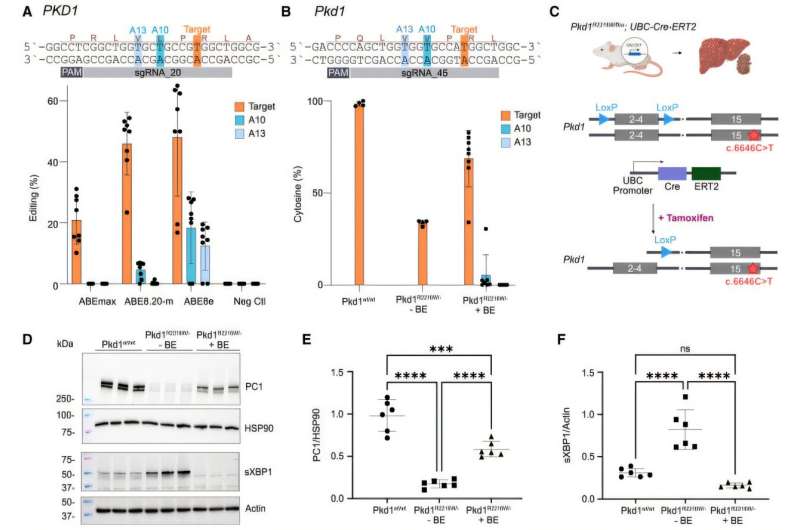Approximately one in a thousand children is born with autosomal dominant polycystic kidney disease (ADPKD), making it one of the most common genetic disorders. The condition is usually caused by a dominantly inherited mutation in the PKD1 or PKD2 gene. These mutations trigger the formation of cysts in the kidneys, which can lead to high blood pressure, pain, and infections—and over time, to kidney failure.
“There’s currently only one approved drug for ADPKD, and it mainly treats symptoms while often causing serious side effects,” says Dr. Michael Kaminski, head of the Emmy Noether Research Group Kidney Cell Engineering at the Berlin Institute for Medical Systems Biology of the Max Delbrück Center (MDC-BIMSB). Kaminski is also a physician in the Department of Nephrology and Medical Intensive Care at Charité—Universitätsmedizin Berlin.

